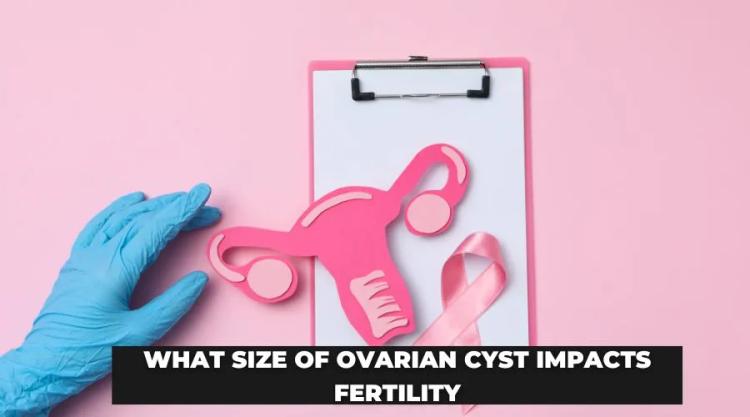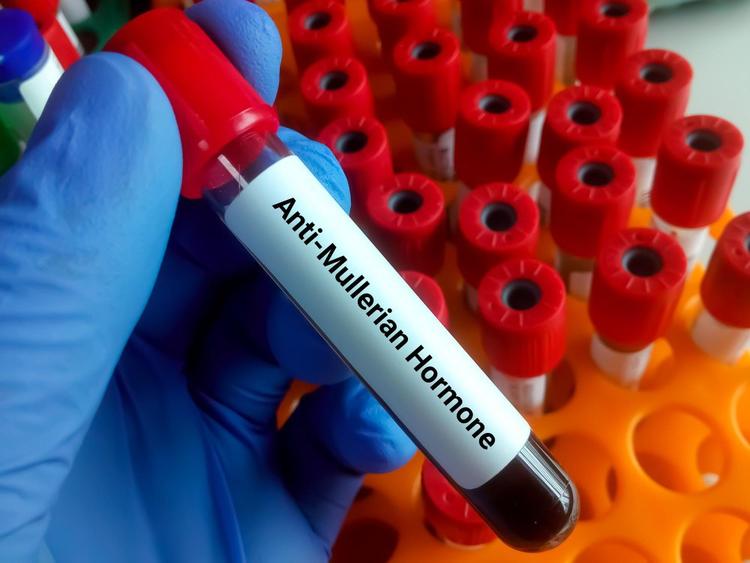PCOD vs PCOS Difference: Different Conditions, Similar Challenges

Medically Reviewed By
Dr. Ragiinii Sharma
Written By Meenakshi
on Jun 19, 2023
Last Edit Made By Meenakshi
on Jan 10, 2025

PCOD and PCOS: are they the same, or are they different? Often used interchangeably, these terms create confusion & misconceptions. Even though both cause hormonal imbalance and there are some similarities, both have distinct identical characteristics or symptoms. In this blog, we’ve tried to demystify the confusion surrounding PCOS vs. PCOD to help you understand the illness better and make informed decisions about their well-being. So, let’s get started with the basics.
What is PCOD?
Stands for Polycystic Ovarian Disorder, PCOD is a hormonal imbalance affecting women of reproductive age, causing the release of immature eggs turning into cysts during ovulation.
What is PCOS?
On the contrary, PCOS, also stands for Polycystic Ovarian Syndrome, is a metabolic disorder in which the ovaries release many male sex hormones, forming follicular cysts in the ovaries. The condition is more severe than PCOD.
Still, there is a lot more that you should know to understand the difference and act appropriately according to the situation. So, keep scrolling, keep reading.
PCOS and PCOD Difference:
- Factors Of Causes: PCOD is caused due to hormonal imbalance, insulin resistance, unhealthy lifestyle, stress, etc., whereas PCOS is a metabolic disorder caused due to genetic disorders, type 2 diabetes, obesity, and more.
- The Seriousness Of The Condition: PCOS is more severe than PCOD, as PCOD is caused due to hormonal imbalance, which can be managed through dietary & lifestyle changes.
- Symptoms: Both conditions cause a few different signs that help distinguish them better. On one side, PCOD causes symptoms like severe acne, male pattern baldness, abdominal weight gain, irregular menstrual cycle, etc. On the contrary, PCOS, a metabolic disorder, causes symptoms like hair loss, irritability, excessive hair growth, weight gain, darkened skin, etc.
- Possible Complications: PCOD is less complicated than PCOS, as it doesn’t affect fertility, and with little medication and lifestyle changes, women still get pregnant. On the other side, PCOS causes infertility, making it harder for women to get pregnant or increasing risks for premature birth, miscarriage & complications in pregnancy.
- Occurrence: According to some recent studies, 1 in 5 women has PCOS. However, PCOD has a relatively low occurrence rate.
- Characteristics: PCOD usually occurs only due to an imbalance in the hormones, which can lead to several complications. While being a metabolic disorder, PCOS affects the overall endocrine system.
While these are different, both conditions can have some complications, which can be severe if left unaddressed. Therefore, getting screened in time is critical to identify the problem and act accordingly. So, delay no more, and book PCOD Test.
People often confuse PCOS and PCOD and consider them the same. PCOS prevalence in India ranges between 3.7% to 22.5%. Here is an easy understanding of the differences between PCOS and PCOD in table form, which every woman should know.
| PCOS | PCOD |
| PCOS in full form is Polycystic Ovary Syndrome. | PCOD in full form is Polycystic Ovary Disorder. |
| PCOS is a serious medical condition that globally affects 0.2 to 2.5% of women. | PCOD can be managed with time; around 10% of women have this common medical disorder. |
| PCOS is a more serious medical condition than PCOD. This medical condition may lead to anovulation, where ovaries stop the production of eggs. | PCOD is a health condition where ovaries produce immature eggs. Lifestyle modifications, unhealthy habits, obesity, stress, and hormonal imbalance can cause PCOD. |
| PCOS has serious health complications such as type 2 diabetes, stroke, heart attacks, heart disease, high sugar, blood pressure levels, and cholesterol levels. | PCOD has no serious health complications. |
| PCOS can cause fertility complications. | PCOD doesn’t cause fertility complications. |
| Women with PCOS require fertility treatment to manage health conditions. | Women with PCOD experience mild symptoms. You can manage it with lifestyle modifications. |
Diagnosis & Treatment For PCOS & PCOD:
If you suspect unusual signs or are at higher risk, getting yourself tested before the eleventh hour is essential. Besides ensuring accurate diagnosis, it helps you receive treatment promptly to alleviate symptoms and manage the condition better. If you are looking for a reliable diagnostic partner for the PCOS Test, you can count on Redcliffe Labs. You can get tested with us from the comfort of your home at competitive market prices. So, delay no more and book a PCOS screening with us now.
Tips To Manage PCOS Vs. PCOD:
While doctor guidance or professional treatment is essential, here are a few general guidelines that can apply to both and can make the condition manageable, such as:
- Maintain Healthy Weight: Obesity is the foremost factor contributing to a higher risk for PCOS. Therefore, shedding extra pounds if you are obese or maintaining a healthy body is essential to manage the condition and alleviate symptoms to a possible extent.
If you want to learn the connection between obesity and PCOD, also read:
- Limit Carbohydrate Consumption: Whether you have PCOS or PCOD, following a diet low in carbs is critical to keep your insulin levels in balance and manage the condition well. In most cases, it is advisable to sidestep sugar & starchy foods like potatoes, bread, rice, pasta, etc.
- Be Active: Following a physically active regimen is equally critical to regulating blood sugar levels, keeping weight within a healthy range, and managing PCOS or PCOD better.
- Switch To A Balanced Diet: Yes! Your diet has a significant role in helping you manage PCOS or PCOD and other diseases in general. However, any changes in your dietary regimen should be done by consulting with your healthcare practitioner to ensure that the results are optimal and benefit your health.
- Manage Stress Levels: High-stress levels can disrupt hormones and cause hormonal balances, contributing to high risk. Therefore, stress less and live more. You can practice stress-releasing activities to relax and unwind.
- Consider Diagnosis: Overlooking the symptoms and taking healthy by chance is the biggest mistake that can turn into something serious. Therefore, if you have characteristics indicating the condition or are in the high-risk category, you should get screened at the earliest to identify the problem and take treatment in time.
- Take Treatment As Prescribed: Early medical intervention is equally significant to manage symptoms, restore hormonal imbalance and minimize your risks of several potential risks or complications associated with the condition.
Remember, PCOS & PCOD can be managed to a possible extent with the right and timely care. Therefore, consulting with your healthcare practitioner in time is essential to get appropriate guidance and avoid complications.
What Are the Risk Factors Which Can Lead to PCOS and PCOD?
PCOS and PCOD are serious health complications. Each has some risk factors that may create serious health competition. These are:
- Obesity
- Family or Medical history
- Imbalance of Hormone
- Genetics or hereditary health complication
- Diet
- Heavy exercise
- Unhealthy lifestyle
Diet Chart For Managing PCOS and PCOD
A well-balanced diet can help manage PCOS and PCOD. Here is a planned diet chart for managing PCOS and PCOD.
| Day | Breakfast | Lunch | Dinner |
| Monday | 2 Uttappam | 1 bowl of rice + ½ cup soya curry + ½ cup lady's finger vegetable (sabzi) + 1 bowl low-fat curd | 1 cup wheat upma + ½ cup green beans vegetable (sabzi) |
| Tuesday | 1 cup mixed veg poha + ½ glass of milk | 2 chapati + ½ cup cluster beans sabzi | 2 roti + ½ cup ridge gourd sabji |
| Wednesday | 1 cup oats upma + ½ glass of milk | ½ cup rice + 2 chapatis + ½ bowl of kidney beans (rajma) sabzi | 2 roti + ½ cup mixed veg curry |
| Thursday | 2 methi paratha with green chutney | 1 cup rice + 1 cup cucumber salad | 2 wheat dosa + ½ cup bitter guard sabzi |
| Friday | 2 chapatis + ½ cup green peas curry | 1 cup rice + 1 bowl of cucumber salad | 1 cup wheat upma + ½ cup green beans sabzi |
| Saturday | 2 brown bread with 1 low-fat cheese slice + 2 boiled eggs | 1 bowl of veg pulao + ½ cup of low-fat curd | 2 roti + ½ cup lady's finger sabzi |
| Sunday | 2 idlis with sambar + green or tomato chutney | ½ cup salad with 2 roti | 2 roti + ½ bowl of tomato sabzi |
Conclusion:
While there is a few differences and many similarities in both conditions, understanding them individually is essential to take proactive steps and preventive measures for better care and management. If you have any doubts, you can speak with your healthcare provider, and if they have suggested the screening based on your symptoms, medical history, family history, or risk factors, getting tested in time is essential.
Reach Redcliffe Labs For Reliable PCOS Diagnosis!
At Redcliffe Labs, we understand the significance of accurate diagnosis. Therefore, we provide the PCOD/PCOS Test at highly competitive market rates with the comfort of home testing. Intended to enhance customer experience and offer reliable diagnostic services to every individual, we also provide express slots to help you get tested comfortably from home within 45 minutes. So, book Polycystic Ovary Syndrome Test with Redcliffe Labs now.


